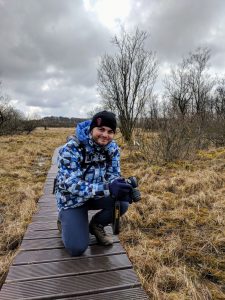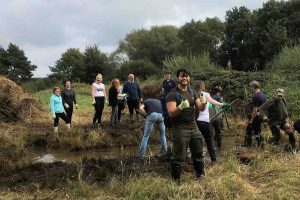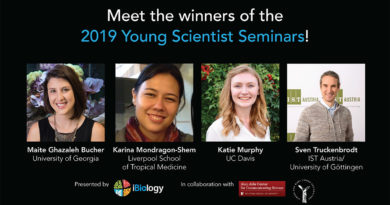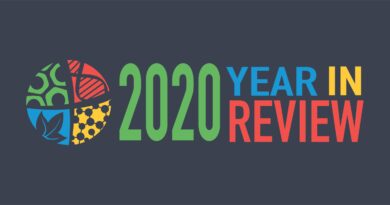‘To believe is to be able’
A examine of developing self-efficacy in undergraduate biologists at the College of Hull by the HE Bioscience Teacher of the 12 months, Dominic Henri.
I strongly consider that the process of Higher Training must offer the option for college students to overcome a extensive array of barriers, which can then be drawn upon to bolster self-belief in the pursuit of their particular aspirations.
The progress of this form of self-self confidence, called self-efficacy, or task specific self-perception, has been shown to deliver a wide-selection of positive aspects for pupils, this sort of as improved accomplishment, persistence as a result of trouble, a lot more buoyant psychological-overall health, and increased employability.
College student self-efficacy is a thing that can be formulated by lecturers and thoughtful course structure. A large sum of self-efficacy advancement stems from conquering troubles, and as these, college courses have to be hard.
Having said that, introducing a sense of problem into a program can have the opposite outcome to that supposed, if not completed accurately, especially if you overwhelm a student’s notion of their skill to be successful.

Dr Dominic Henri, lecturer in Behavioural Ecology, director of university student encounter for the faculty of environmental sciences, and recipient of this year’s HE Biosciences Teacher of the Calendar year Award (Photograph credit rating: Dominic Henri)
Placing with each other my software for the RSB HE Biosciences Teacher of the Yr award was a extremely crucial method for me, mainly because it gave me time to collate a individual instructing philosophy and a myriad of improvements and activities into a conceptual framework for establishing college student self-efficacy.
My framework for establishing students’ self –efficacy into a study course includes of a few vital measures:
Move 1. Combine structured skills-improvement into the content of your class
When building a HE system, lecturers need to tackle the progress of expertise that are integral for finishing the training course, such as team-function, time-management, independent discovering approaches, management and autonomy.
Pupils will have to then be given the tools, or a course of action, that will assist them create these capabilities, and they will have to also be ready to observe these in small-stake environments. I consider that most learners want to do far better but do not know how to get there, and that deficiency of handle may possibly hinder their attempts to enhance.
Have a feel about what deficiencies are restricting achievement and engagement on your modules and how you can boost these. Abide by this with conversations with your skills-development workforce about what instruments or very best observe is out there to enhance pupil growth of those people capabilities.
For instance, essential thinking can be created utilizing an inquisitive process that is teachable and effortless to combine into assessment, which may be far more impactful than an abstract lecture on what significant thinking is and why it is crucial.
Really encourage team-doing work and assessor-scholar dialogue at this phase, as persons related to a community of practice are a great deal more challenging to overwhelm than isolated men and women.
Move 2. Produce authentic encounters to master the expertise
Overcoming challenge is inherently complicated, and involves drive to try to do so. Consequently this sort of challenges have to resonate with pupil aspirations.
For instance, on our simple conservation module most of the college students want to work in conservation immediately after graduating, so the assessments are aligned with roles that the college students could possibly undertake in conservation work, such as creating a web site to advertise community engagement or consultancy roles assessing the usefulness of tasks for neighborhood conservation organisations. I discover college students consider a lot more from these activities since they immediately relate to what they aspire to be.
Self-efficacy is also undertaking-unique for example, my self-belief in my means to write a superior blog site post is not buoyed by my experiences composing scientific papers, even however they are on equivalent subjects. In the same way, graduate self-efficacy is ideal served by obtaining possibilities to apply essential processes that they will have to carry out ‘on the job’.
In my working experience, the best way to market enthusiasm and self-efficacy is to be certain that these difficulties are considered to be reliable and valued by pupils, so they react positively to these odds to build and develop techniques that they really feel will be beneficial.
Linking issues to specialist difficulties and responsibilities is a fairly straight-forward way of supporting pupils value the price of their education and learning and apps it may well have following graduation.

The Useful Conservation module is an asset to both of those learners and the College of Hull. This module has furnished valuable functional working experience which I would not have acquired usually. The quantity of transferable skills which I have acquired is also invaluable” 2017/18 scholar Module Analysis Response. (Photograph credit history: Dominic Henri)
A very good ideas is to seem at what professions your learners go into and engage with marketplace-stakeholders to see what kinds of responsibilities may be appropriate to assistance acquire the skillsets they glimpse for in candidates. These procedures can have the additional profit of revealing skills and activities that modern graduates likely into these careers are missing.
The pupils then interact with challenging and unfamiliar jobs, such as organising their individual conservation placement, because the problem aligns intently with their vocation aspirations and their interests, and hence build self-assurance in transferable techniques.
There are a substantial wide variety of professions obtainable to biosciences graduates. Getting to know the aspirations of the pupils on your system and tailoring activities to these aspirations is an essential road to enhancing scholar satisfaction and boosting student assurance in their employability.
Step 3. Motivate recognition of development and parts for improvement
Reflection is a main factor of learning, and notably so for abilities advancement.
Reflection can enable defeat a big barrier to the progress of self-efficacy: personalized perception of progress. The external setting has a considerable effect on an individual’s feeling of self-efficacy, specially the issues of the latest process.
Pupils may perhaps evaluate their competencies centered on how they “feel” they are carrying out, alternatively than on how they are really performing.
This is problematic, for the reason that the feeling of problem need to boost as students’ development by way of training. So, in buy to maximise perception of progress, students have to be given the opportunity to thoughtfully and thoroughly replicate to their progress in the course of.
Some strategies of reflection are:
- Requesting the forms of comments pupils would like when they hand in get the job done, such as enabling pupils to attach a protect letter to their do the job, with space for responses from the lecturer.
- Pupils determining the strengths and weaknesses in their own work in relation to criteria or requirements just before handing it in for comments. This style of reflection is extremely productive if made use of on draft assignment submissions.
- Reflecting on their achievements and picking perform in get to compile a portfolio.
- Reflecting on accomplishment milestones and reflecting back on development, ahead of seeking ahead to the next stage of action, for instance, routinely current job action plans put together with tutor discussion.
Placing it all jointly!
For me, just one of the most important issues to solution by means of my teaching is: how are my pupils heading to implement this in the long run?
My greatest training-connected nervousness is that the college students will believe of schooling as some thing that is to be acquired, analyzed on and then neglected.
Making use of the over methods to encourage students to build a vital ability that is applicable to their wider university and graduate paths is my way of making an attempt to make my training about personal development.
My hope is that every single and every single interaction amongst me and my students has the prospective to come to be a touchstone in that student’s personalized development, which they glance back upon when faced with a challenge and say “I did that, so I can do this way too.”




